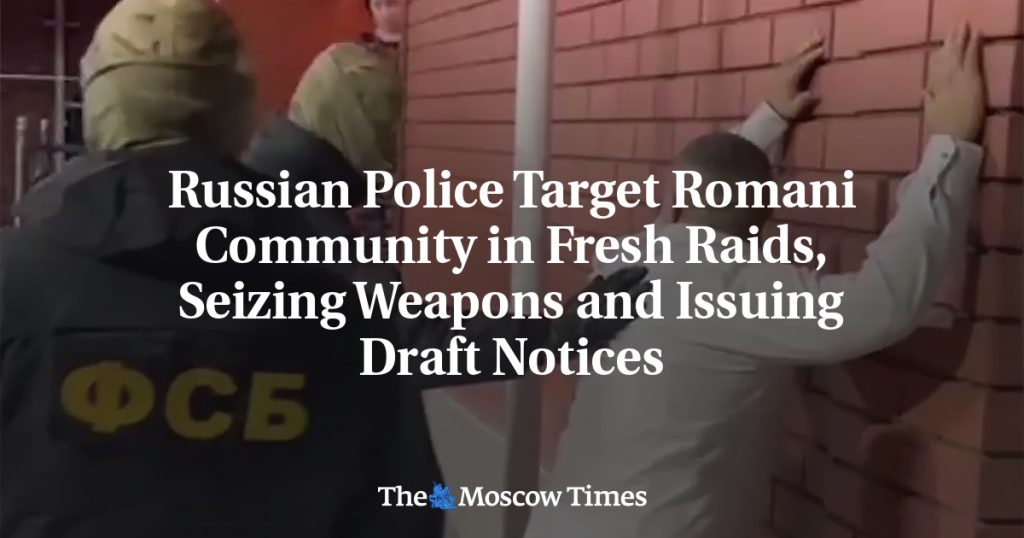Russian law enforcement officers in the Chelyabinsk region have been conducting a series of raids targeting the Roma community following a murder that sparked ethnic tensions in the area. These raids, described as “crime prevention” measures, have involved police officers, FSB agents, and National Guard soldiers entering private homes and inspecting residents. The raids have led to the seizure of weapons and military summons being handed out to residents, with plans for more raids in the future.
The raids in the town of Troitsk have been specifically focused on individuals identified as Roma, with officials characterizing the area as populated by individuals prone to illegal activities. The crackdown has been criticized by the head of Russia’s largest Romani diaspora organization as collective punishment against the Roma community. The raids come in the wake of a violent incident in the nearby town of Korkino, where residents clashed with riot police after rumors spread that two Romani men were involved in a woman’s murder.
Following the incident in Korkino, regional investigators arrested a 17-year-old male on suspicion of killing the woman. The Chelyabinsk region Governor ordered police raids targeting Romani residents after local authorities were reprimanded for failing to address the ethnic tensions that led to violence in the area. In response to the raids, the town’s mayor announced her resignation after federal investigators accused local authorities of ignoring concerns about the Romani community’s behavior. The ongoing crackdown has reignited tensions between law enforcement and the Romani community in the region.
The raids in the Chelyabinsk region raise concerns about the targeting and profiling of the Roma community by law enforcement. The seizure of weapons and military summons being handed out suggest a heavy-handed approach that may perpetuate stereotypes and discrimination against the Roma population. The collective punishment of Roma individuals for the actions of a few has been condemned as unjust and discriminatory, further exacerbating tensions between the community and authorities.
The situation in the Chelyabinsk region highlights the complex dynamics of ethnic tensions, law enforcement practices, and community relations in Russia. The fallout from the initial violent incident in Korkino has led to a series of police raids that have escalated tensions and raised concerns about human rights violations. The response from regional authorities, including the resignation of the town’s mayor, reflects the challenges of addressing interethnic conflicts and ensuring the protection of all residents, regardless of their background.
As the raids continue and tensions remain high in the Chelyabinsk region, it is imperative for authorities to engage in dialogue with the Roma community and address the underlying issues that have contributed to the recent violence. Efforts to prevent further conflicts must be based on respect for human rights, non-discrimination, and the rule of law. The situation serves as a reminder of the importance of promoting understanding, tolerance, and inclusivity in diverse societies, and the need for transparent and accountable law enforcement practices to uphold justice for all individuals.















